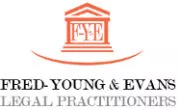There have been numerous reports of arrest and prosecution of debtors for failure to settle their debts. This trend has led to consistent public outcry for law enforcement agents to concentrate on their primary role of combating crime rather than delving into the private lives of business partners. However, 2 (two) interesting questions arise from this situation; (1) Can law enforcement agents arrest and prosecute debtors for failure to pay debts? (2) What is the extent of Nigerian criminal justice system on debt recovery? An overview of the behavioral pattern of debtors and the Nigerian criminal law will shed more light on the subject.
In some jurisdictions in Europe, the Court imposes fines and restitution costs on individuals with criminal conviction. Instead of crowding their correctional facilities, the state generates revenue and structures their budgets around the revenue from "conviction debts". Although "debtor's prison" is illegal in those jurisdictions, re-incarceration of persons for failure to pay the conviction debts is common. In Nigeria, though some offences carry punishment of a prison term or fine or both, the fines are usually too meager compared to those imposed in Courts in Europe. Nevertheless, like in those jurisdictions in Europe, convicts who are sentenced to payment of fines may be arrested and imprisoned if they fail to pay the fines.
Furthermore, in Nigeria, it is not uncommon for a debtor to agree on installment payment towards the liquidation of a debt upon receipt of the creditor's letter of demand. The debtor may issue post-dated cheques to the creditor to cover the respective installments. But where the creditor presents the cheque for payment, after 3 (three) months from the date on the cheque and the cheque is returned dishonored because there is insufficient funds in the debtor's account, Section 1(b) of the Dishonored Cheque Act, makes the debtor guilty of an offence and upon conviction be sentenced to 2 (two) years imprisonment without option of fine. A body corporate will be sentenced to a fine of ₦ 5,000 for the same offence.
In the same vein, in instances where a judgment debtor refuses to settle a Judgment debt, a Judgment creditor may apply for a Judgment Summons to be issued against the Judgment debtor in accordance with Section 55 and 68 of the Sheriff and Civil Process Act. The Judgment debtor is by the Judgment Summons required to appear in Court and be examined on oath as to his means to settle the Judgment debt or any part thereof since Judgment was delivered. The Court may issue a warrant of arrest and remand the Judgment debtor in prison if he fails to appear in Court or show cause to the satisfaction of the Court why he should not be punished for failure to liquidate the Judgment debt.
Besides, during and soon after the consolidation of Nigerian Banks, some Bank Executives alongside their biggest debtors were arrested and prosecuted by the Economic and Financial Crimes Commission ("EFCC"). The Bank Executives were not prosecuted for taking bad credit decisions which resulted in the Banks' huge bad debt portfolio but for making arrangement to approve loans for themselves and their companies by false pretenses and by means of fraud contrary to the provision of Section 419 of the Criminal Code Act and the provisions of the EFCC Act.
Moreover, as a result of the poor record keeping system in both the public and private sectors and the coercive powers of the law enforcement agencies, there is a greater reliance on criminal investigation in tracing, freezing and recovery of stolen assets. It is easier to use the apparatus of the state and the provisions of the relevant Acts such as the Money Laundering Act, Corrupt Practices and Other Related Offences Act, EFCC Act, Advance Fee Fraud and Other Related Offences Act and other related legislations to trace and recover illegally acquired wealth rather than institute civil action to do so.
In conclusion, though debt recovery is within the civil realm, where a debtor dishonestly refuses to pay his debts or attempts to defraud his creditors, the Nigerian criminal justice system would not turn a blind eye. If the creditor invokes the criminal quotient of the 3 debtor's actions, the law enforcement agents may arrest, prosecute and recover the debt from the debtor. It is therefore without doubt that the criminal justice system plays a pivotal role on asset and debt recovery in modern day Nigeria.
The content of this article is intended to provide a general guide to the subject matter. Specialist advice should be sought about your specific circumstances.

